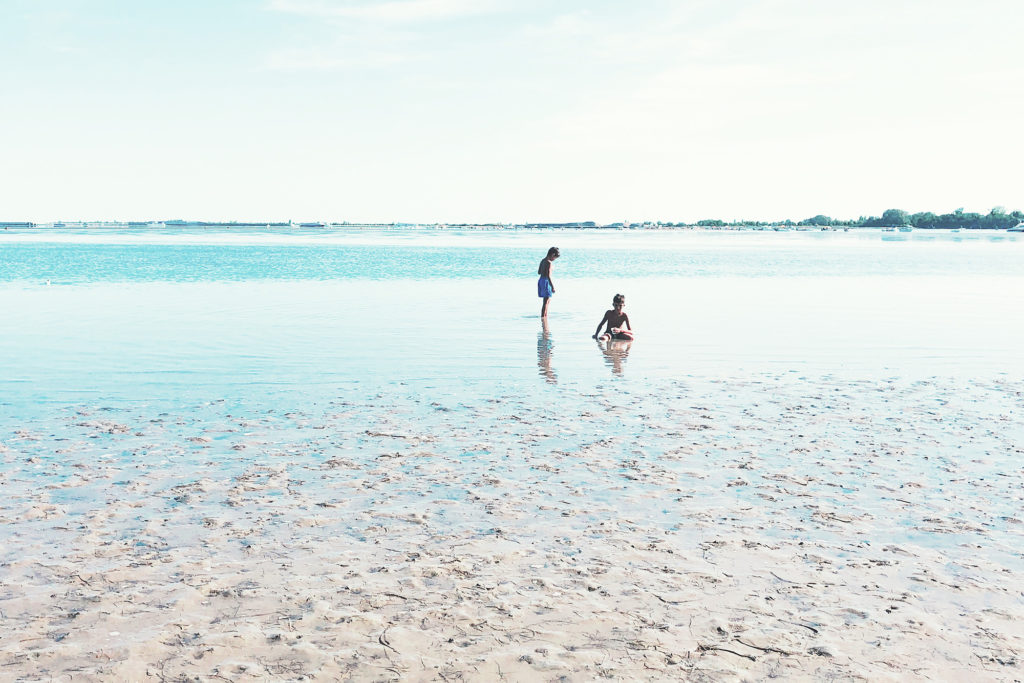Aschenbach on Sant’Erasmo
There appears to be no way to get here. Maybe dug-out canoe or secret tunnel. Some silent, shrouded boatman who nods evenly as you press a silver coin into his palm before pushing out into the current with you silhouetted against the rolling fog in the thin black belly of his gondola. The fabled 18 is rumored to stop; but when you whimper ‘diciotto?’ at the bar, heads turn and the room falls silent. Just the whisper of gamberi shells see-sawing to the floor like fallout. Perhaps there’s a sampan, a junk, a bathyscape? An old man with the head of a turtle, legs of a frog, who ferries each passenger, one at a time, upon the knobbled hummock of his scaly back?

I watch and wait: consume a quarto of white with spaghetti alla busara, made on Sant’Erasmo with lagoon canocchie; a kind of prehistoric sea-locust, a smear of edible tissue lurking within a cartilaginous carapace, like the plastic handle of a toddler’s tricycle. No boat. No complaints. In Venice, afternoon drinking furs time into velvet. I lounge in my chair, a study in professorial languor, gazing out at the shimmering lagoon from behind oversize sunglasses, wearing a stupid hat calculated to arouse curiosity and an equally stupid smile; smugly amused, perhaps chuckling internally at some witty villanelle I didn’t compose while mopping my plate with a hank of ciabatta. It’s possible I’m a twat. I mean, if I wasn’t, I’d likely not be eating alone. But gently sozzled on the outer orbit of Chiosco Al Bacan, gazing across to Le Vignole and San Nicolò, the knob that rounds off the ragged femur of Lido di Venezia, I no longer care. Unashamed twattery is the order of the day. So when the waitress suggests a sgroppino, I acquiesce like a natural, despite having forgotten what one is. And then caffé corretto with grappa. Still no boat. And so, basking in the saltwater bliss of watching kids pull tiny vongole from the tidal flats, a second sgroppino.

Nothing. Nothing. The horizon is an unbroken line, rendered woozy by sun and sgroppini. In my vodka-fuddled reverie I believe I hear the locals striking up an old sea shanty about a drunken antique English seafarer wearing a skirt and Nyree Dawn Porter’s hat from The Forsyte Saga, who can’t stop grinning despite there being nothing funny going on. And why do they keep calling him ‘the big liver’?
I pay the bill – an absolute steal for a whole afternoon of self-mythologizing – sickle unsteadily from the chair into my espadrilles and Aschenbach off through the clam beds; up the long trail to the far side of the island, missing the hourly Fondamente Nove vaporetto by 3 minutes. And thus, for 57 more, pass out upon the concrete murazzo, pink, supine and snoring. A tramp in effigy. Happy as a vongola.
•••

